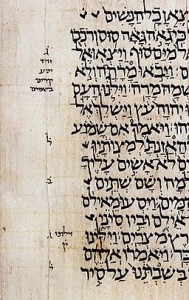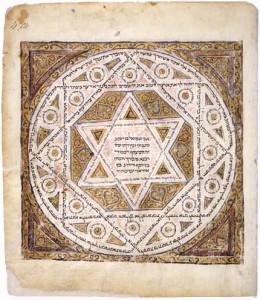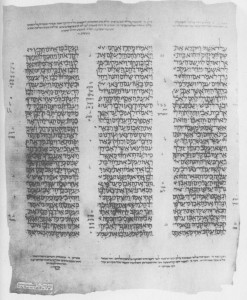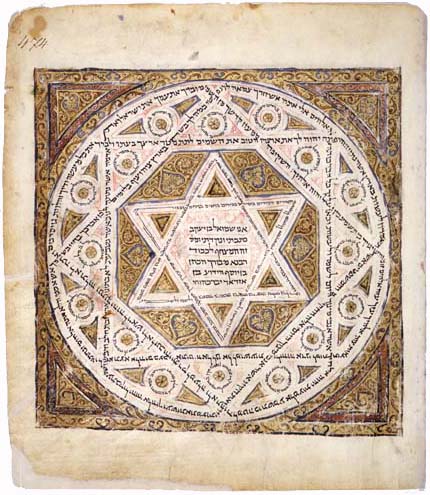The Leningrad Codex or Codex Leningradensis is the oldest complete manuscript of the Hebrew bible (in Hebrew) we possess today.
Masoretic Hebrew Text

Some time around the 10th century CE a group of Jewish scholars developed a system of diacritic points to accompany the consonantal text of the Hebrew bible. These scholars, the Masoretes (from Hebrew מָסֹרֶת “tradition”) were concerned that the pronunciation of biblical Hebrew words might be lost if not clearly marked. Besides vowels they also wanted to record the musical tradition, and the accents of words.
As we can see in the sample from the Leningrad Codex (Exodus 15:21-16:3), the text includes Hebrew consonants, vowels, and cantillation marks. The system of diacritic marks used in the Leningrad Codex is called Tiberian pointing or Tiberian vocalization, because the Masoretes who devised it came from the city of Tiberias. This system became the most dominant among the different systems of vocalization. It is still in use today.

Dating
According to its colophon, the manuscript was written about 1008 CE in Cairo.
Name and Location of the Manuscript
The Leningrad Codex has been housed by the National Library of Russia in the city of Saint Petersburg since 1863. Saint Petersburg underwent a couple of name changes during the last century. Between 1924 and 1991 it was called Leningrad. In order to avoid confusion by renaming it St. Petersburg Codex (which is the name of another biblical codex, MS. Heb B 3), the name Leningrad remained as a name. Codex is an old word for a book that is made from a number of sheets with hand-written content and bound between two covers.

Importance
Since the 1930s the Leningrad Codex has been used as the main text for the BHS (Biblia Hebraica Stuttgartensia) and later for the BHQ (Biblia Hebraica Quinta), which is used together with the text-critical apparatus of the BHS by Hebrew scholars.
The Westminster Leningrad Codex is an online digital version of the Leningrad Codex maintained by the J. Alan Groves Center for Advanced Biblical Research at the Westminster Theological Seminary. This is a verified electronic version of BHS with further proofreading and corrections. The online version includes transcription notes and tools for analyzing syntax.
The Leningrad Codex is used today as the basis for most modern printed editions of the Hebrew Bible, together with a few other incomplete Hebrew Bibles.
 Read the Leningrad Codex online or download as pdf.
Read the Leningrad Codex online or download as pdf.

